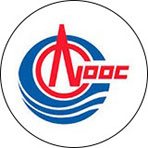
My team primarily provides legal services to the largest-scale commercial transactions, bond and securities issues, divestitures, joint ventures and M&A. There’s obviously an imperative to avoid litigation, or situations that could lead to the potential for litigation. CNOOC considers a huge number of opportunities, so we get exposed to many potentially high-profile deals, but we only look at about 5% of all the opportunities we’re offered seriously.
The increase in outbound investments brings different challenges for in-house counsel in China. A company like CNOOC will carefully study what kinds of risks they will face in the country where they plan to make their investment – such as systemic risks, geopolitical risks, forex [foreign exchange] controls, or any potential risk of the nationalisation of the target.
The role of in-house counsel in Chinese companies has changed a lot in recent years. In-house counsel also take all of the factors into consideration regarding how to effectively structure the transaction with other work streams. For example, sometimes we may need to participate in geostructural design, and other times we need to engage with tax issues, but you always need to have the ability to comment intelligently and have control of your subject. You need to have a truly detailed understanding of your industry to satisfy the requests of senior management in doing cross-border transactions.
As Chinese companies and SOEs [state-owned enterprises] have had greater involvement in overseas investments, Chinese in-house lawyers have become more knowledgeable and more accountable, because they have participated in very high profile transactions in the market. Two years ago we acquired Nexen, which was the largest outbound deal at the time. But our commercial team had looked at Nexen from six years earlier and waited for the most opportunistic time to begin the acquisition.
When I joined in 2005, the in-house team at CNOOC participated in outbound investments but were not as sophisticated, and much of the work was done by international law firms. Then, in-house counsel weren’t really expected to form our own opinions or make comments. Now we comment all the time and understand the international standard of transaction documents. In fact, we can do a lot of the work internally.
